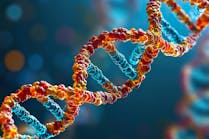Scientists identify how a biological pathway leads stem cells to die or regenerate
A new study led by Cedars-Sinai and the University of California, San Francisco (UCSF), has determined that altering a cellular process can lead stem cells—cells from which other cells in the body develop—to die or regenerate.
The findings, published in the peer-reviewed journal Cell Stem Cell, may assist in the development of new drugs that can manipulate this process to slow or stop cancer from growing and spreading, and enable regeneration in the context of other diseases.
For this study, investigators at Cedars-Sinai and UCSF observed the effects of a gene called Discs large 1 (Dlg1) on the Wnt signaling pathway. This pathway involves a series of molecular interactions that regulate the growth or death of stem cells.
The Wnt pathway, which begins on the surface of a cell and ends inside of it, is critical for stem cell renewal and tissue regeneration. Although the pathway has been studied extensively, much is still unknown about how small increases and decreases in the frequency of communication signals through the pathway may affect the creation of new cells.
Investigators studied intestinal tissue samples from laboratory mice to learn how mutations in Dlg1 affect the interaction between Wnt signaling and stem cells in the highly regenerative gastrointestinal tract. By performing gene expression analysis on the samples, the team looked for changes in genes that typically send signals along the Wnt pathway.
Through this process, investigators were able to see how changes in signaling frequency affected the creation of stem cells. The investigators found that when they inhibited the expression of Dlg1 and then increased signaling along the Wnt pathway by the addition of a specific molecule, such as a virus or drug, the stem cells died rather than generate new daughter cells.





